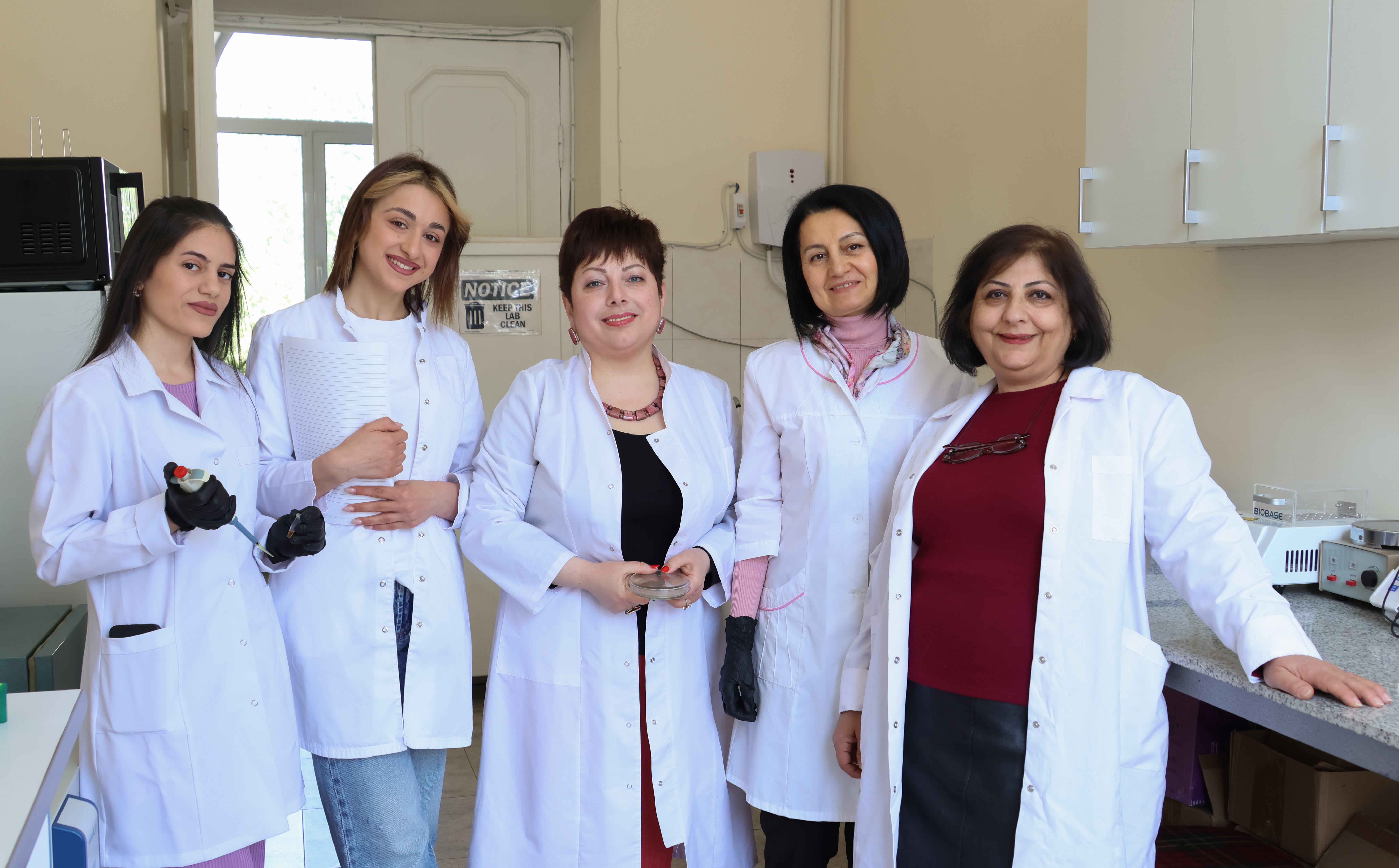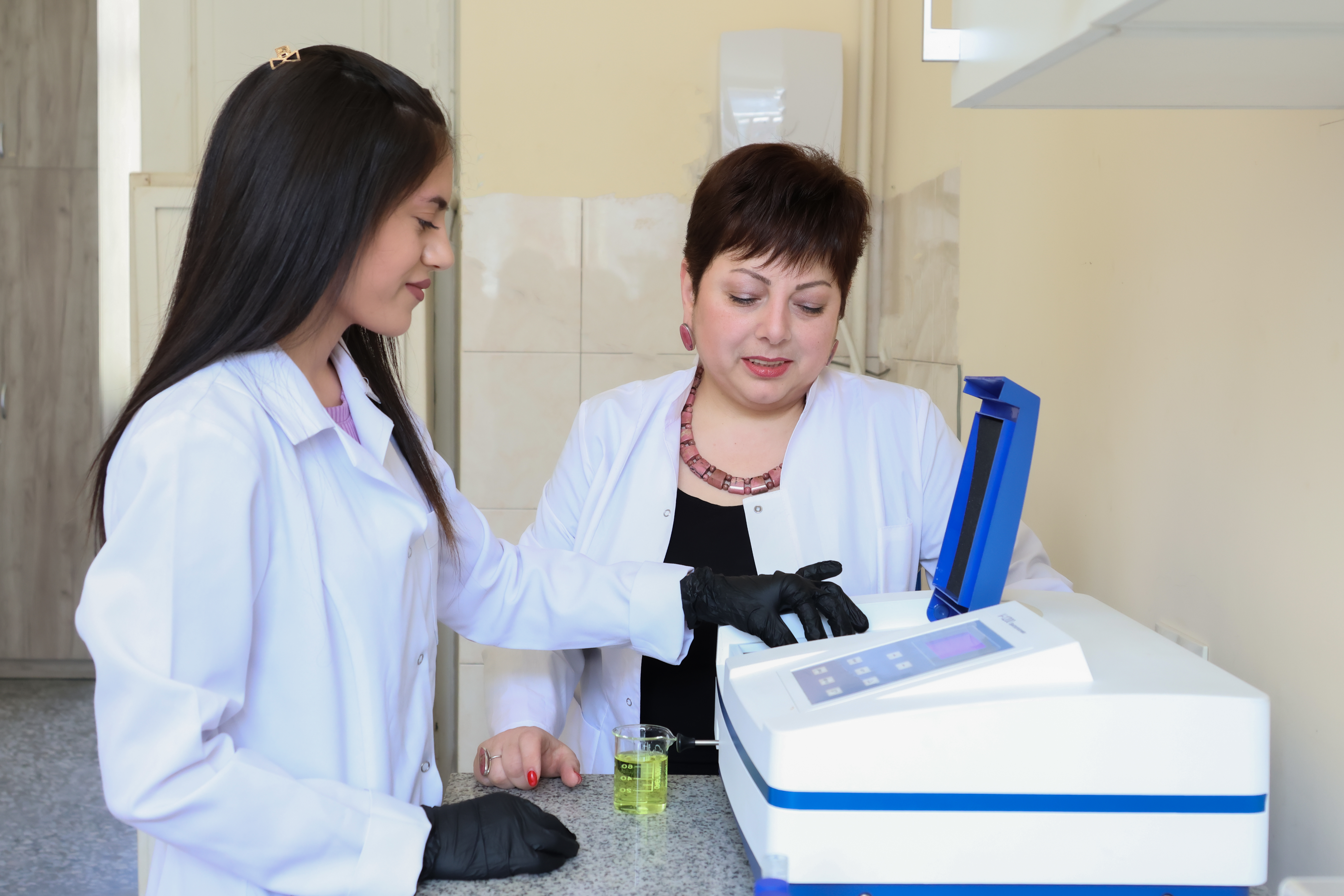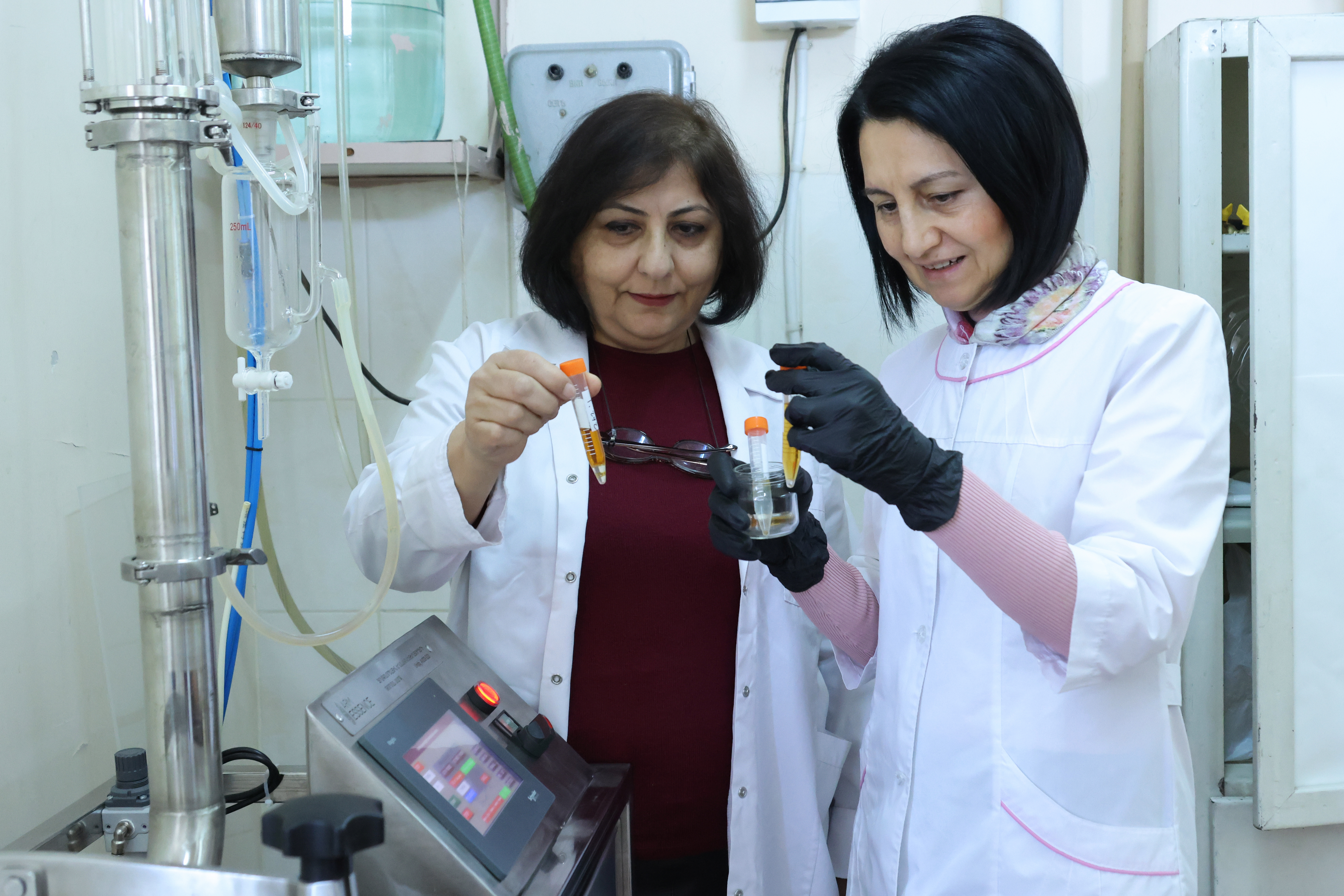April 25, 2025 | 10:10
Research
International cooperation
Competitions
Collaboration between YSU and University of Burgundy explores valuable properties of underutilized essential oil-bearing plants
In Armenia, significant areas are occupied by semi-deserts, steppes, and steppe shrubs, whose flora represents a valuable source of essential oil-bearing plants. Narine Zakaryan, Associate Professor at the Chair of Botany and Mycology and Researcher at the Research Institute of Biology, Yerevan State University, highlights this point, noting that essential oil-bearing plants make up 9% of Armenia's flora. She, along with her research team, is currently studying the economic significance of plant species that are underutilized by the population of Armenia, uncovering their antifungal, anti-inflammatory, anti-aging, and other valuable properties.
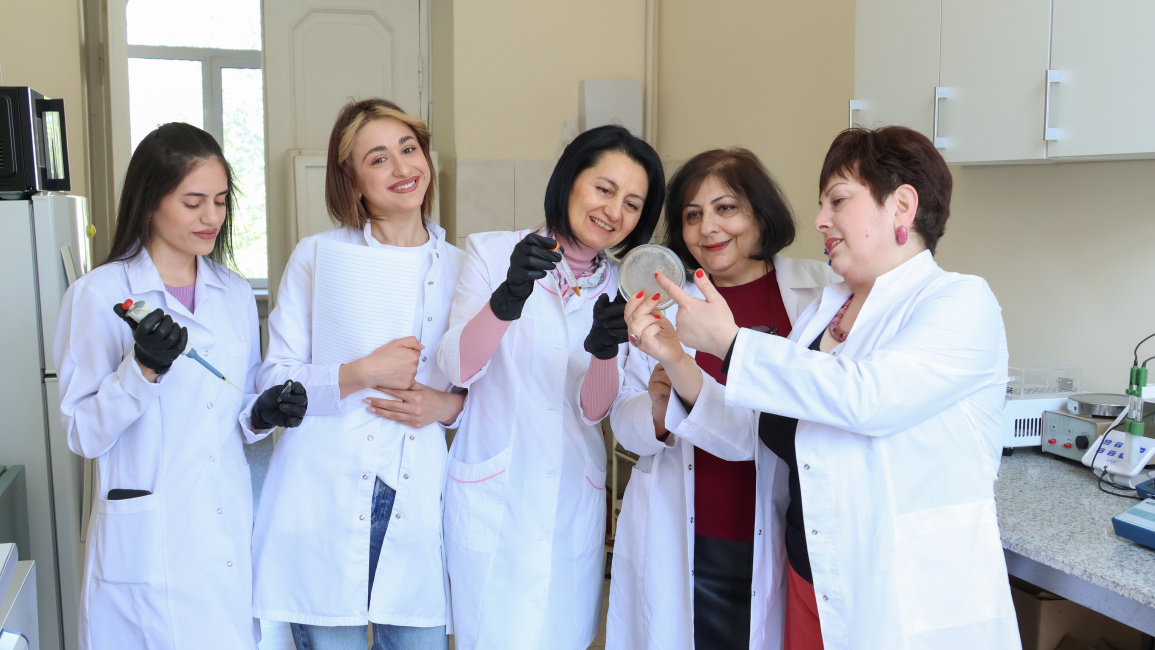
The scientific project titled "Biodiversity and Bioactivity of Wild Essential Oil-bearing Plants of the Lamiaceae Family in Armenia," authored by Narine Zakaryan, has been approved for funding under the "Scientific Effectiveness Promotion Grant Program-2025," announced by the Higher Education and Science Committee of MoESCS RA.
Together with her research team, Narine Zakaryan is studying the economic significance of essential oil-bearing plant species not utilized by the Armenian population. The research aims to uncover their antifungal, anti-inflammatory, anti-aging, and other valuable properties. The plant species are collected from various provinces of the country, including Kotayk, Aragatsotn, and Ararat. According to the researcher, dry and stressful conditions contribute to an increase in the essential oil yield of these species.
"The primary goal of this project is to identify the diversity of wild-growing essential oil-bearing species of the Lamiaceae family in Armenia, and to conduct multifaceted studies of the plants in question, elucidating the economic importance of species previously underutilized by the population," said Narine Zakaryan. She emphasized that the research focuses on four genera from the Lamiaceae family: Betonica, Salvia, Leonurus, and Lamium.
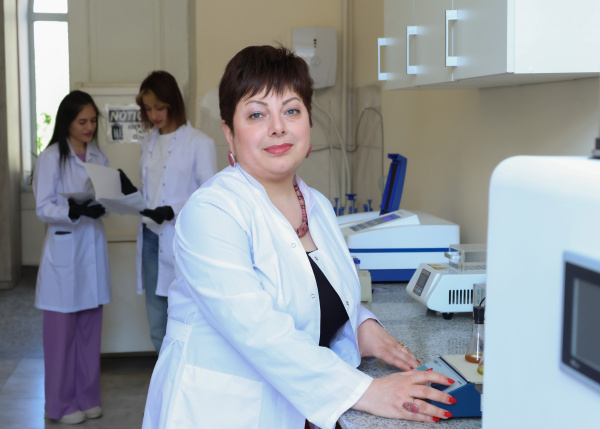
"For the first time, the bio-chemical composition of the solutions and essential oils of these genera will be studied, as well as their antioxidant and antifungal activities. As part of the research, we will try to discover their chemotypes, which, growing in different climatic conditions, exhibit qualitative and quantitative differences in bioactive compounds. Currently, we are evaluating the bioactivity of the plant solutions belonging to the genus Salvia at YSU. For example, we are investigating whether there are any antifungal and antioxidant activities present," noted the associate professor.
Narine Zakaryan stressed that two business trips to the University of Burgundy are planned for next year, where the essential oil samples extracted from the plants collected by the research team will be analyzed for their biochemical composition and chemotype.
"The work being conducted could serve as a foundation for developing non-toxic and environmentally friendly plant-based fungicides, anti-inflammatory, and anti-aging agents. This is particularly significant in modern pharmaceuticals, agriculture, food production, and therapeutic and decorative cosmetology," she highlighted.
It is important to highlight that the research team’s advisor is Professor Anne-Claire Miten-Offer, Head of the Pharmacognosy Laboratory at the University of Burgundy. The team includes Astghik Poghosyan, Associate Professor at the Chair of Botany and Mycology and Researcher in the Research Institute of Biology; Nune Kartashyan, Senior Laboratory Assistant at the Chair of Botany and Mycology; Astghik Baghdasaryan, Senior Laboratory Assistant at the Research Institute of Biology; and bachelor’s student Knarik Yeghiyan.





